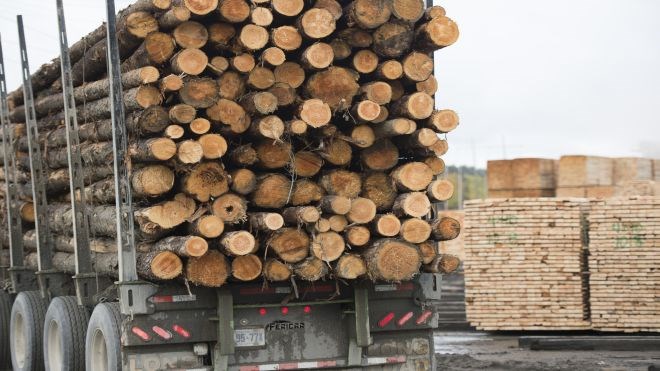THUNDER BAY – Though a devastating hurricane season south of the border has largely mitigated the impact of duties on the Canadian softwood lumber industry, a Northwestern Ontario union leader cautions they aren’t on safe ground.
Earlier this year the United States began levelling countervailing and antidumping duties on imports from Canada, with The Canadian Press reporting in November that the measures had already cost producers $500 million.
Unifor national representative Gary Bragnalo said enough lumber is being sold to the United States to rebuild in the aftermath of hurricanes Harvey and Irma, which wreaked havoc on Texas and Florida, to offset the duties.
“We were here 10 years ago and it had a devastating effect on us,” Bragnalo said. “This time so far, touch wood, it’s not as bad right now because everybody is building houses and fixing houses up from the storms. We can just wait and see what’s going to happen.”
The levelling of duties came after the forestry industry showed signs of revitalization, particularly in Northwestern Ontario.
In recent years, Resolute Forest Products reopened the once-idled sawmill in Ignace and built a new facility in Atikokan. As well, the Kenora Forest Products sawmill as brought back in production in 2016 after being idled since 2008 and their mills in Hornepayne and White River have also been brought back in service after being shuttered.
“We don’t need people worrying about whether they’re going to have jobs in the woodlands because of this now,” Bragnalo said. “We have young families starting their lives and getting jobs.”
The federal government earlier this year announced an $867 million relief package of loans and loan guarantees to producers to help soften the costs of the duties.
Bragnalo said the impacts wouldn’t be limited to just direct producers, adding there are a number of secondary jobs across range of industries and services.
“Right now, everything is going good but it’s always in the back of your mind,” Bragnalo said. “This is probably going to take a couple of years to settle out and hopefully we can weather the storm.”
